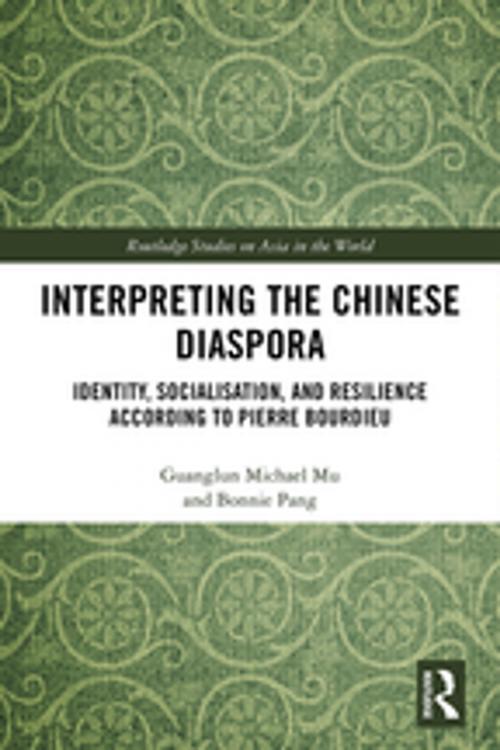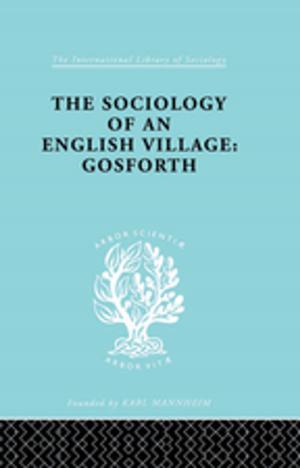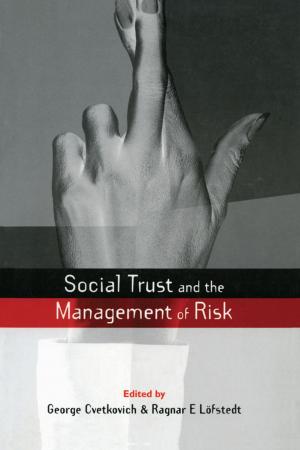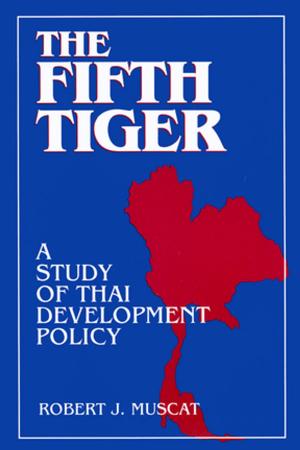Interpreting the Chinese Diaspora
Identity, Socialisation, and Resilience According to Pierre Bourdieu
Nonfiction, Social & Cultural Studies, Social Science, Cultural Studies, Ethnic Studies| Author: | Guanglun Michael Mu, Bonnie Pang | ISBN: | 9781351118804 |
| Publisher: | Taylor and Francis | Publication: | March 28, 2019 |
| Imprint: | Routledge | Language: | English |
| Author: | Guanglun Michael Mu, Bonnie Pang |
| ISBN: | 9781351118804 |
| Publisher: | Taylor and Francis |
| Publication: | March 28, 2019 |
| Imprint: | Routledge |
| Language: | English |
Globalisation and migration have created a vibrant yet dysphoric world fraught with different, and sometimes competing, practices and discourses. The emergent properties of the modern world inevitably complicate the being, doing, and thinking of Chinese diasporic populations living in predominantly white, English-speaking societies. This raises questions of what 'Chineseness' is. The gradual transfer of power from the West to the East shuffles the relative cultural weights within these societies. How do the global power shifts and local cultural vibrancies come to shape the social dispositions and positions of the Chinese diaspora, and how does the Chinese diaspora respond to these changes? How does primary pedagogic work through family upbringing and secondary pedagogic work through educational socialisation complicate, obfuscate, and enrich Chineseness?
Drawing on Pierre Bourdieu’s reflexive sociology on relative and relational sociocultural positions, Mu and Pang assess how historical, contemporary, and ongoing changes across social spaces of family, school, and community come to shape the intergenerational educational, cultural, and social reproduction of Chinese diasporic populations. The two authors engage in an in-depth analysis of the identity work, educational socialisation, and resilience building of young Chinese Australians and Chinese Canadians in the ever-changing lived world. The authors look particularly at the tensions and dynamics around the participants’ life and educational choices; the meaning making out of their Chinese bodies in relation to gender, race, and language; and the sociological process of resilience that enculturates them into a system of dispositions and positions required to bounce back from structural constraints.
Globalisation and migration have created a vibrant yet dysphoric world fraught with different, and sometimes competing, practices and discourses. The emergent properties of the modern world inevitably complicate the being, doing, and thinking of Chinese diasporic populations living in predominantly white, English-speaking societies. This raises questions of what 'Chineseness' is. The gradual transfer of power from the West to the East shuffles the relative cultural weights within these societies. How do the global power shifts and local cultural vibrancies come to shape the social dispositions and positions of the Chinese diaspora, and how does the Chinese diaspora respond to these changes? How does primary pedagogic work through family upbringing and secondary pedagogic work through educational socialisation complicate, obfuscate, and enrich Chineseness?
Drawing on Pierre Bourdieu’s reflexive sociology on relative and relational sociocultural positions, Mu and Pang assess how historical, contemporary, and ongoing changes across social spaces of family, school, and community come to shape the intergenerational educational, cultural, and social reproduction of Chinese diasporic populations. The two authors engage in an in-depth analysis of the identity work, educational socialisation, and resilience building of young Chinese Australians and Chinese Canadians in the ever-changing lived world. The authors look particularly at the tensions and dynamics around the participants’ life and educational choices; the meaning making out of their Chinese bodies in relation to gender, race, and language; and the sociological process of resilience that enculturates them into a system of dispositions and positions required to bounce back from structural constraints.















